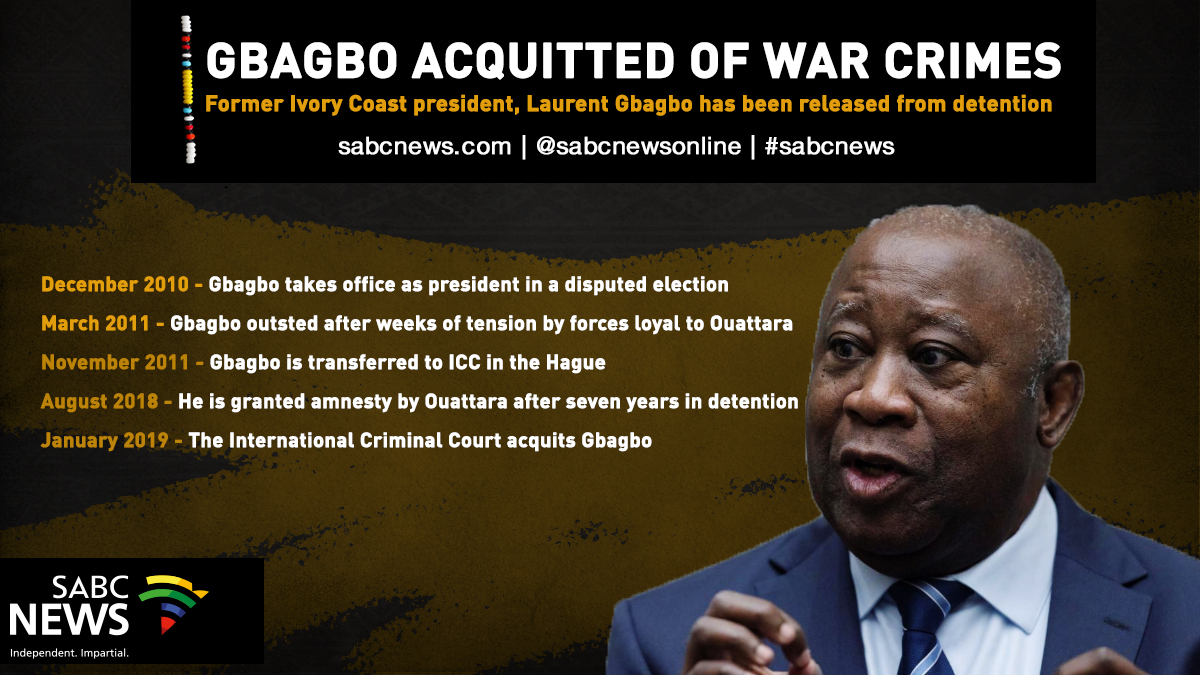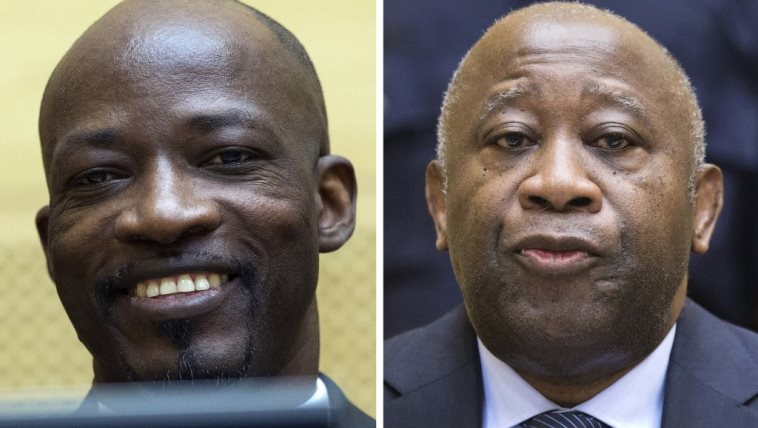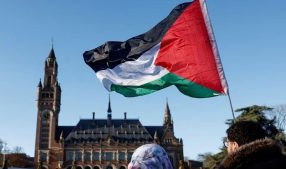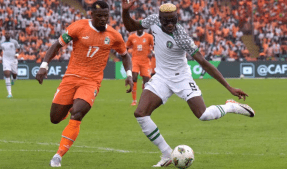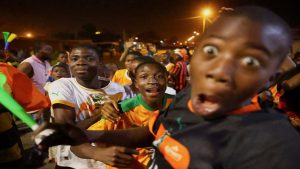The International Criminal Court acquitted former Ivory Coast president Laurent Gbagbo on Tuesday over a wave of post-electoral violence, in a stunning blow to the war crimes tribunal in The Hague.
Judges ordered the immediate release of the 73-year-old deposed strongman, the first head of state to stand trial at the troubled ICC, and his former youth leader Charles Ble Goude, 47.
Gbagbo faced charges of crimes against humanity after 3,000 people were killed in months of clashes in the west African nation when he refused to accept defeat after elections in late 2010.
Prosecutors said Gbagbo clung to power “by all means” after he was narrowly beaten by his bitter rival — now president — Alassane Ouattara in elections in the world’s largest cocoa producer.
But head judge Cuno Tarfusser said that the ICC “by majority hereby decides that the prosecution has failed to satisfy the burden of proof to the requisite standard.”
He added that the court “grants the defence motions for acquittal for all charges for Mr Laurent Gbagbo and Mr Charles Ble Goude and orders the immediate release of both accused.”
Gbagbo, who has spent seven years in detention, and Ble Goude hugged each other after the decision was handed down.
Supporters started cheering, clapping and crying in the court’s public gallery, prompting the judge to order them to sit down and “behave”.
– ‘Victory for justice’ –
“I am very, very happy. Finally there is some justice,” Gragbayou Yves, 45, a Gbagbo supporter from Paris, told AFP in the public gallery moments after the judgment was passed.
Wild scenes also erupted in Gbagbo’s home town in the Ivory Coast, Gagnoa, with hundreds of supporters shouting “free, free” and dancing in the streets after watching the decision live on television.
“I’m happy. He did nothing wrong yet he’s spent seven years in prison. It’s important that he should be free, he’s our leader,” said supporter Bertin Sery.
In Abidjan, Assoa Adou, secretary general of Gbagbo’s party the Ivorian Popular Front (FPI), predicted the acquittal would ease political tensions rather than exacerbate them.
“We have just made a big step towards reconciliation,” Adou said, amid a jubilant crowd at party headquarters. “Ivory Coast will soon be in peace.”
Gbagbo was captured by Ouattara’s troops, who were being aided by UN and French forces, and sent to The Hague in November 2011. His trial started in January 2016.
But the judges on Tuesday said prosecutors had failed to show there was evidence of a “common plan” to keep Gbagbo in power, a policy of attacking civilians, or that speeches by Gbagbo and Ble Goude incited violence.
Their release was suspended until a fresh hearing on Wednesday to give the prosecution time to respond to the shock judgment.
The office of ICC prosecutor Fatou Bensouda said the decision was “disappointing and unexpected”, adding that the prosecution had the right to appeal.
Gbagbo’s lawyers last year argued that his case had descended into “fake reality” and should be dismissed, adding that he was now “elderly and fragile”.
“This is a victory for justice,” Gbagbo’s lawyer Emmanuel Altit told a press conference after Tuesday’s decision.
– ‘Bitterly bruised’ –
But the highly divisive case has tested the court’s avowed aim of delivering justice to the victims of the world’s worst crimes since its establishment in 2002.
The ICC has faced serious difficulties over attempts to try top politicians for crimes committed by subordinates or followers — most of them in Africa.
Last year, former DR Congo warlord and ex-vice president Jean-Pierre Bemba was acquitted on appeal for crimes allegedly committed by his militia in the Central African Republic in 2002-2003.
Kenyan President Uhuru Kenyatta also saw charges of crimes against humanity over electoral bloodshed dropped by the ICC prosecutor in 2014.
The Gbagbo result leaves the court “bitterly bruised”, said international law expert Mark Kersten of the University of Toronto.
“It leaves serious questions about the ability of the ICC to successfully target and prosecute state actors,” he told AFP. “It must learn from these trials and errors to be better — and meet expectations — in the very near future.”
Gbagbo’s acquittal also means he follows in the footsteps of his wife Simone Gbagbo.
The so-called Iron Lady walked away from a 20-year jail term in Ivory Coast in August when she was granted an amnesty by Ouattara after seven years in detention.
Gbagbo however still faces a 20-year jail sentence for “economic crimes” imposed by an Ivorian court in 2018. Whether he serves it or not is expected to be part of negotiations about any eventual homecoming.
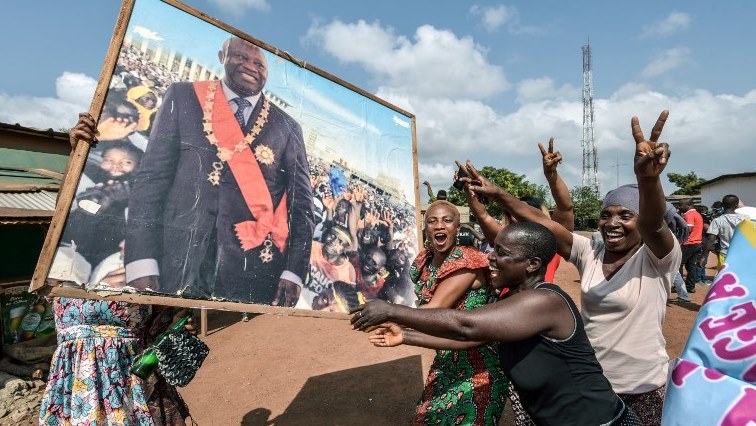
Key dates in Ivory Coast crisis
Ivory Coast ex-president Laurent Gbagbo, the first former head of state to go on trial before the International Criminal Court in The Hague, was acquitted on Tuesday of charges of crimes against humanity, relating to unrest triggered by his bid to cling on to power.
Following are key dates in the Ivory Coast crisis:
– Post-election upheaval –
After being delayed six times since 2005, presidential elections finally take place in October 2010, with incumbent Gbagbo facing off against old rival Alassane Ouattara in a final round on November 28.
On December 3, the constitutional council declares Gbagbo the victor — but the electoral commission says Ouattara won.
The UN too recognises Ouattara as the winner, with the EU, UN and former colonial power France urging Gbagbo to concede defeat.
But a day later Gbagbo’s allies hang the chain of office around his neck and Ouattara swears himself in as president in a handwritten letter.
On December 7, west Africa’s regional ECOWAS bloc suspends Ivory Coast over the crisis and calls on Gbagbo to yield. The African Union follows suit.
Gbagbo digs in, holing up at the presidential palace and retaining the support of the army. Ouattara sets up his government headquarters at the Golf Hotel in Abidjan.
In March 2011, after months of tension, unrest and unsuccessful mediation efforts, forces loyal to Ouattara based in the north launch an offensive against the army and win control of much of the country in four days.
French and UN soldiers deploy in Abidjan to prevent the use of heavy weapons in what has become a civil war.
After 10 days of fighting in the capital, Gbagbo is arrested by Ouattara’s troops. More than 3,000 people are killed during the crisis.
On May 21 Ouattara is sworn in as president before 20 African leaders and then French president, Nicolas Sarkozy.
– Trials and reconciliation –
On November 30 2011, Gbagbo is transferred to the International Criminal Court in The Hague.
In September 2014, a Dialogue, Truth and Reconciliation Commission holds public hearings of victims and perpetrators of the 2000-2011 political-military crisis, but is criticised for its lack of organisation and results.
On March 10 2015, former first lady Simone Gbagbo is sentenced in the main city Abidjan to 20 years in prison for her role in the post-election crisis.
In August 2018, the 69-year-old is granted an amnesty by Ouattara after spending seven years in detention.
– Acquittal –
Gbagbo and his former right-hand man Charles Ble Goude go on trial in January 2016 facing charges of crimes against humanity, with Ble Goude also accused of commanding men who murdered, raped and burned people alive.
On January 15 2019, both are acquitted.
The ICC says that by a majority, the court “decides that the prosecution has failed to satisfy the burden of proof to the requisite standard.”
